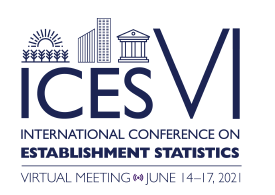All Times ET
Program is Subject to Change
TBD
When Will Swedish Retailers Stop Accepting Cash? (307968)
*Björn Segendorf, Sveriges RiksbankKeywords: Cash, cashless, retailer, payment habits, two-sided markets, tipping point
Money is one of humanity’s most important innovations, but it is changing form. Electronic payments are on the rise and Sweden is one of the frontrunners in the race towards a cashless society. The peak for cash in Sweden occurred in 2007; since then the value of cash in circulation has fallen by more than 50 per cent and this development seems irreversible. Nearly 40 per cent of the payments at the point of sale were made in cash in 2010. In 2018 it was only around 13 per cent. Our aim is to identify when Sweden may become a cashless society which we define as a society where cash is not a generally accepted medium-of-exchange, i.e. when cash is not accepted by a majority of the merchants. One important assumption we make is that merchants are economically rational decision makers and will stop accepting cash when the cost of accepting cash surpasses the profit on cash sales. We developed a simple linear model to identify a critical threshold, measured as cash’s share of the retailer’s turnover, below which accepting cash yields a loss. We tested our research model via a survey that covered 741 merchants (end of 2016) and secondary data from public sources. Based on costs and turnover, the research identified March 2023 as the date when the average merchant will stop taking cash and Sweden becomes a cash-free society. The date is in line with the view of the merchants themselves. In the survey we posed the direct and open question “When do you think you will stop accepting cash?”. It turned out that 50 per cent of our population believed they would have stopped accepting cash by 2025.
